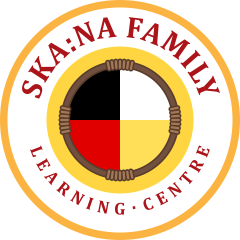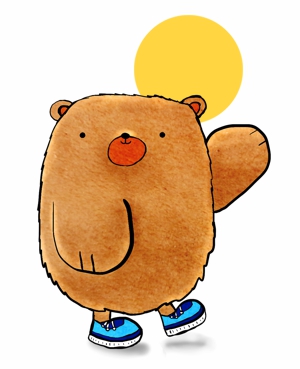Preschool
A Lifetime of Learning Starts Here.
Overview
The educational philosophy defines the guiding principles that underlie the educational approach. It is the basis for determining the goals and objectives and developing or adapting implementation strategies.
The Educational and Child Development philosophy of the Ska:na Family Learning Centre is:
- to provide each child with a safe, nurturing, stimulating, enjoyable, and secure environment in order to help him/her gain the skills and confidence necessary to be prepared to succeed in their present environment and with later responsibilities in school and life.
- to enhance social competence through the acquisition of mental, physical, spiritual, and emotional skills in a manner appropriate to each child's age and stage of development.
- to provide learning experiences which are tailored to each child's unique temperament, culture, preferences, and learning styles.
- to provide each child with a comprehensive learning experience, the educational aspects of Holistic health and well being must be integrated into the daily program of activities for children.
- to involve parents, given their role as primary educators, in the development and educational activities for the program and at home.
- to recognize the importance of utilizing culture and language throughout the entire program as a means of enhancing the cultural identity and self-esteem of participants.
Your Preschooler's Day
High/Scope programs follow a predictable sequence of events known as the daily routine. This provides a structure within which children can make choices and follow their interests. Following a consistent routine day after day gives children the sense of security they need to be able to make choices and take risks, which opens the door to exciting learning opportunities. Although each High/Scope program decides on the routine that works best for its setting, schedule, and population, the segments described in the following section are always included during the program day. The length and order of the segments varies from program to program.
Components of the Daily Routine
Plan-Do-Review Sequence (Planning Time, Work Time, Recall Time) - This three-part sequence is unique to the High/Scope Curriculum. It includes a 10 to 15 minute period during which children plan what they want to do during work time (the area to visit, materials to use, and friends to play with); a 45 to 60 minute work time for carrying out their plans and another 10 to 15 minute period for reviewing and recalling with an adult and other children what they've done and learned. In between "do" and "review" children clean up by putting away their materials or storing unfinished projects.
Children are very active and purposeful during the "do" portions of the day because they are pursuing activities that interest them. They may follow their initial plans, but often, as they become engaged, their plans shift or may even change completely. The three elements of this sequence always occur in the same order.
Small-Group Time - During small-group time, 6-8 children meet with an adult to experiment with materials, try out new skills, and solve problems. Adults develop a small-group activity based on children's interests and particular skills, materials, or content areas that suit children's developmental learning needs. Though the adult plans the activity and sets it in motion, children make choices about how to use the materials and freely communicate their ideas. The length of small group varies with the children's age, interests, and engagement. At the end of the period, children help with cleanup.
Large-Group Time - Large-group time builds a sense of community. Up to 20 children and 2 adults come together for movement and music activities, interactive storytelling, and other shared experiences. Children have many opportunities to make choices and play the role of leader.
Outside Time - Children and adults spend at least 30 minutes outside every day, enjoying vigorous and often noisy play in the fresh air.
Transition Times - Transitions are the minutes between other blocks of the day, as well as arrival and departure times. Teachers strive to make transitions pass smoothly, since they set the stage for the next segment in the day's schedule. They also provide meaningful learning opportunities themselves.
Eating and Resting Times (if applicable) - Meals and snacks allow children to enjoy eating healthy food in a supportive social setting. Rest is for quiet, solitary activities. Since both activities happen at home as well as at school, adults in High/Scope programs try to respect family customs at these times as much as possible. A primary goal is to create a shared and secure sense of community within the program.
Adult Team Planning Time - This time happens every day in a High/Scope program. It can occur during children's naptime, before children arrive, or after they leave. The teaching team meets to discuss their observations of children's developing abilities and interests, focusing on these observations as they plan activities and review the materials in the classroom.
Key Learning Experiences
High/Scope Preschool Key Developmental Indicators (Key Experiences) © 2007 High/Scope® Educational Research Foundation
High/Scope's "key developmental indicators" (KDIs) are early childhood milestones that guide teachers as they plan and assess learning experiences and interact with children to support learning. The term "key developmental indicators" replaces the term "key experiences." The 58 KDIs match the 58 preschool key experiences, but they have been reorganized under the following five curriculum content areas: approaches to learning; language, literacy, and communication; social and emotional development; physical development, health, and well-being; and arts and sciences. Arts and sciences are further divided into these subjects: mathematics, science and technology, social studies, and the arts.
Approaches to Learning
- Making and expressing choices, plans, and decisions.
- Solving problems encountered in play.
Language, Literacy, and Communication
- Talking with others about personally meaningful experiences.
- Describing objects, events, and relations.
- Having fun with language: listening to stories and poems, making up stories and rhymes.
- Writing in various ways: drawing, scribbling, letter-like forms, invented spelling, conventional forms.
- Reading in various ways: reading storybooks, signs and symbols, one's own writing.
- Dictating stories.
Social and Emotional Development
- Taking care of one's own needs.
- Expressing feelings in words.
- Building relationships with children and adults.
- Creating and experiencing collaborative play.
- Dealing with social conflict.
Physical Development, Health, and Well-Being
- Moving in nonlocomotor ways (anchored movement: bending, twisting, rocking, swinging one's arms.
- Moving in locomotor ways (nonanchored movement: running, jumping, hopping, skipping, marching, climbing)
- Moving with objects.
- Expressing creativity in movement.
- Describing movement.
- Acting upon movement directions.
- Feeling and expressing steady beat.
- Moving in sequences to a common beat.
Arts and Sciences
Mathematics
- Comparing Attributes (longer/shorter, bigger/smaller)
- Arranging several things one after another in a series or pattern and describing the relationships(big/bigger/biggest, red/blue/red/blue) Fitting one ordered set of objects to another through trial and error (small cup-small saucer/medium cup-medium saucer-big cup-big saucer)
- Comparing the numbers of things in two sets to determine "more," "fewer," "same number"
- Arranging two sets of objects in one-to-one correspondence.
- Counting Objects.
- Filling and emptying.
- Fitting things together and taking them apart.
- Changing the shape and arrangement of objects (wrapping, twisting, stretching, stacking, enclosing)
- Observing people, places, and things from different spatial viewpoints.
- Experiencing and describing positions, directions, and distances in the play space, building, and neighborhood.
- Interpreting spatial relations in drawings, pictures, and photographs.
Seriation
Number
Space
Science and Technology
- Recognizing objects by sight, sound, touch, taste, and smell.
- Exploring and describing similarities, differences, and the attributes of things.
- Distinguishing and describing shapes.
- Sorting and matching.
- Using and describing something in several ways.
- Holding more than one attribute in mind at a time.
- Distinguishing between "some" and "all".
- Describing characteristics something does not possess or what class it does not belong to.
- Starting and stopping an action on signal.
- Experiencing and describing rates of movement.
- Experiencing and comparing time intervals.
- Anticipating, remembering, and describing sequences of events.
- Participating in group routines.
- Being sensitive to the feelings, interests, and needs of others.
Classification
Time
Social Studies
Arts
- Relating models, pictures, and photographs to real places and things.
- Making models out of clay, blocks, and other materials.
- Drawing and painting.
- Imitating actions and sounds.
- Pretending and role playing.
- Moving to music.
- Exploring and identifying sounds.
- Exploring the singing voice.
- Developing melody.
- Singing songs.
- Playing simple musical instruments.
Visual Arts
Dramatic Art
Music
Contact us by email if you have any questions: info@skanaflc.com

